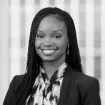On October 3, 2023, a three-judge panel from the Superior Court of New Jersey Appellate Division reversed a jury verdict against Johnson & Johnson over accusations its asbestos-tainted talcum powder caused consumers to develop cancer. The crux of the decision: improper admission of unreliable expert opinions.1
As background, in 2017, plaintiffs sued Johnson & Johnson in Middlesex County, New Jersey, alleging that defendants mined, manufactured, and marketed products containing asbestos which caused them to develop mesothelioma after long-term usage. To support their allegations, plaintiffs leveraged several experts in the areas of environmental health, occupational medicine, and materials analysis. Defendants sought to exclude the opinions offered by plaintiffs' experts, but the trial court denied their pretrial motions.2 At trial, after having heard testimony from all plaintiffs' experts, the jury returned verdicts in favor of plaintiffs.3 Johnson & Johnson appealed in part based on the trial court's decision to allow plaintiffs' experts to testify as to their expert opinions despite those opinions being unreliable, not supported by generally accepted methodologies, and unsupported by the facts in the record. The appellate court agreed, finding that the trial court misapplied New Jersey's well-established judicial gatekeeping jurisprudence regarding admissibility of expert testimony.
As part of its decision, the appellate court provided an instructive overview of the admissibility of expert testimony under New Jersey law. The court explained that the first of "three prerequisites" for the admissibility of expert testimony is that "the intended testimony must concern a subject matter that is beyond the ken of the average juror."4 Second, "the field testified to must be at a state of the art such that an expert's testimony could be sufficiently reliable."5 And third, "the witness must have sufficient expertise to offer the intended testimony."6 Importantly, the appellate court noted that a trial court must "assess both the methodology used by the expert to arrive at an opinion and the underlying data used in the formation of the opinion."7 The court noted that this "rigorous role is critical" to "prevent[] the jury from exposure to unsound science that is labeled expert or scientific."8 Thus, where a proposed expert's testimony "does not satisfy [New Jersey's] standards for a sound methodology and the reasonable reliance on the type of data and information used by other experts in the field," that expert's testimony "should be excluded."9
Operating under this framework, the appellate court then turned to the admissibility of the opinions of plaintiffs' experts, and ultimately determined that the court erred in admitting those opinions. As such, the appellate court overturned the trial court verdict and remanded the proceedings for a new trial. Several important lessons emerge from the court's thorough analysis regarding challenges to a plaintiff's experts:
- An expert's report must set forth all data that the expert relies on for their opinions. Two of the experts were criticized by the court for "fail[ing] to identify the data" that they used to form their opinion or discuss how the authorities they relied on "provided comparable data from other experts in the same field."10 The court found that one expert cited to a limited number of publications and failed to identify the data he used to form his opinion; rather, the expert only generally stated, without explanation or discussion, that the sources he relied upon were similarly relied upon by other unspecified experts.11 The court noted that the other expert also failed to adequately identify her sources.12 Additionally, the court observed that "although [the expert] claimed that she reviewed additional studies and found information" to support her opinions, "she failed to identify these studies."13
- Publications and sources previously determined to be unreliable can render an expert's opinions based on those sources unreliable as well. One expert was also criticized by the appellate court for relying on two publications in the present case that were previously found to be faulty and unreliable in a prior case, making the expert's testimony based on those sources in the present matter similarly flawed.14 Specifically, the appellate court in the prior case had determined that one of the sources "did not report the results of a scientific study, was not peer reviewed, made controversial claims, and did not support" plaintiffs' allegations.15 The court had also previously found the other cited source "provided no details of any studies, made no distinctions between asbestiform fibers and cleavage fragments; and did not state that exposure to cleavage fragments caused mesothelioma."16 Thus, in the present case, the appellate court concluded that allowing the jury to hear expert testimony based on these two sources "allowed the jury to hear unsound science labeled as expert and scientific."17
- There must be sufficient evidence in the record to conclude that an expert's methodology is sound and accepted in the scientific community. Lastly, the appellate court found that one expert's extrapolation methodology to determine the plaintiffs' exposures was not based on a "sound, adequately founded scientific methodology involving data reasonably relied upon by experts in the field."18 The court found that the expert merely estimated the number of plaintiffs' exposures to defendants' products based on "deposition testimony about the number of times they used defendants' products per day; Johnson & Johnson's own studies about the amount of talcum powder a person used per application; and the length of time each plaintiff used defendants' products as presented in their respective deposition testimony."19 The court found that this evidence was insufficient to support the expert's extrapolation methodology, and furthermore, that it was "unclear if [the expert's] extrapolation method had been tested, subjected to peer review or publication, subjected to standards for controlling the technique, or accepted in the scientific community."20 The appellate court noted that the trial court's "meager" findings on the reliability of the expert's extrapolation methodology "plainly did not comply with the strictures" of relevant New Jersey case law on the admissibility of expert opinions.21
STRATEGIC TAKEAWAYS
The appellate court's decision sets forth several potential strategies to challenge the admissibility of plaintiff expert opinions. First, a plaintiff's expert must sufficiently identify and explain the scientific data and evidence that allegedly support their opinions. Second, prior judicial findings regarding the reliability of certain publications or sources may inform the admissibility of an expert who bases their opinions in part on those sources in subsequent proceedings. And third, an expert's methodology must be based on sources or data typically relied upon by experts in the relevant scientific field or accepted in the scientific community. Each of these avenues can provide an independent basis to argue for the exclusion of that expert's opinions.
Footnotes
1. See generally, Barden v. Brenntag N. Am., Inc., 2023 WL 6430088 (N.J. Super. Ct. App. Div. Oct. 3, 2023).
2. Id. at *1.
3. Id. at *1–2.
4. Id. at *3.
5. Id.
6. Id.
7. Id.
8. Id.
9. Id. at *4.
10. Id. at *7–9.
11. Id. at *7.
12. Id. at *9.
13. Id.
14. Id. at *7.
15. Id.
16. Id.
17. Id.
18. Id. at *11.
19. Id.
20. Id.
21. Id.
The content of this article is intended to provide a general guide to the subject matter. Specialist advice should be sought about your specific circumstances.




